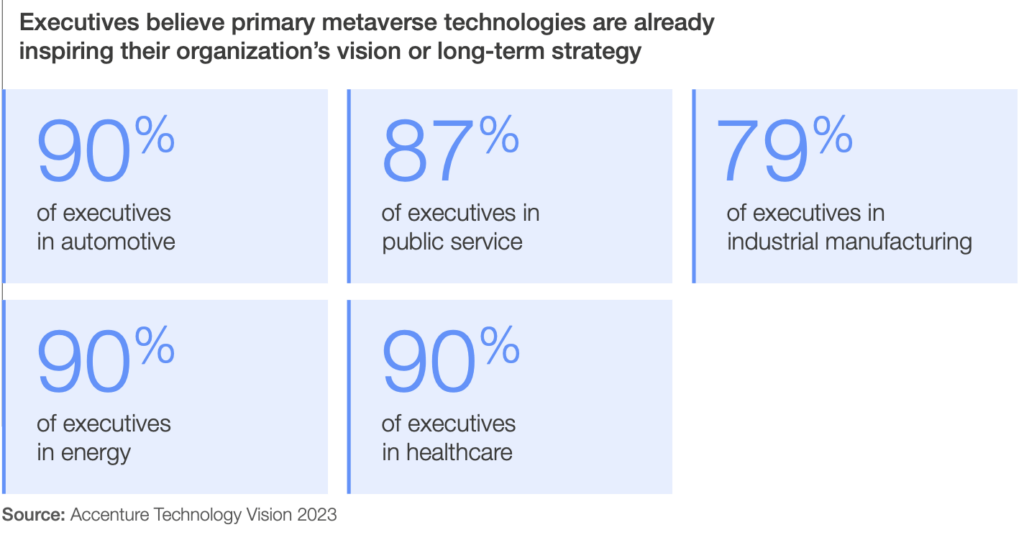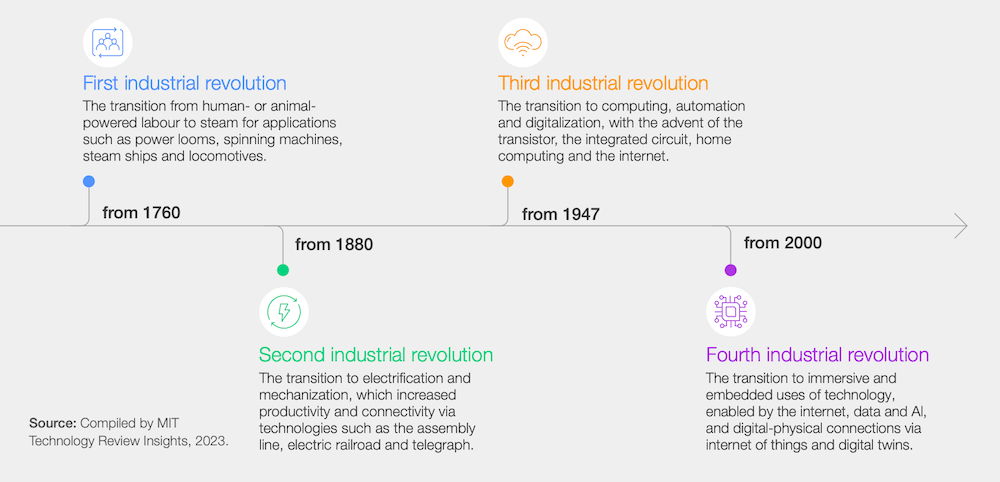The World Economic Forum (WEF) has released a report highlighting the growing influence of Metaverse technology in the manufacturing sector. This new technology, which enables highly immersive virtual environments and is compatible with cryptocurrencies and NFTs, is quickly gaining traction among manufacturing companies and marks a transition into the next phase of the industrial revolution.
Industry leaders are taking notice, with 92% of executives actively seeking ways to integrate Metaverse technology into their operations. The WEF report, titled ‘Exploring the Industrial Metaverse: A Blueprint for Future Innovation’, predicts that the global market for the industrial metaverse will reach $100 billion by 2030, bringing about major changes to the industrial value chain.

The industrial metaverse, described by MIT and Siemens, creates digital twins of complex systems such as machines, factories, cities, and transportation networks. This digital environment provides participants with an immersive, real-time, interactive, continuous simulation that mirrors the real world. These advances will also enable digital solutions to solve complex real-world problems in fields ranging from automotive to healthcare.
According to the report, there are four core technologies at the core of the industrial metaverse: digital twin, spatial computing, artificial intelligence (AI), and blockchain. These technologies work together to create mixed reality, removing physical limitations and increasing agility, adaptability, and real-time interaction. AI and quantum computing are powering digital twins that simulate real-world objects, revolutionizing processing capabilities and enabling highly accurate and fast simulations of complex scenarios.

Future challenges and opportunities
The potential of the metaverse is enormous, but navigating its complexity presents significant challenges to industry leaders. The WEF report highlights the need for cross-industry collaboration to develop the capabilities and ecosystem needed to fully exploit the benefits of this technology. It also highlights the importance of a responsible, ethical and economically viable approach to harnessing the power of the metaverse. The report outlines important considerations for stakeholders embarking on this journey.
Economic Impact and Future Outlook
The economic impact of the metaverse is expected to reach $900 billion by 2030. Virtual experiences are expected to account for two-thirds of this figure, highlighting the critical role of the industry metaverse in shaping industries and driving future innovation. Moreover, by the end of the decade, the Metaverse segment of the industry alone is expected to generate $100 billion in global revenue, more than the consumer and enterprise segments combined.
In conclusion, the WEF report highlights the growing importance of metaverse technologies in the U.S. manufacturing sector. With its potential to transform product design, development, operational efficiency, and significant economic impact, the industrial metaverse will undoubtedly shape the future of a variety of industries. Collaborative efforts and responsible implementation are critical to leveraging the full potential of this new technology.

